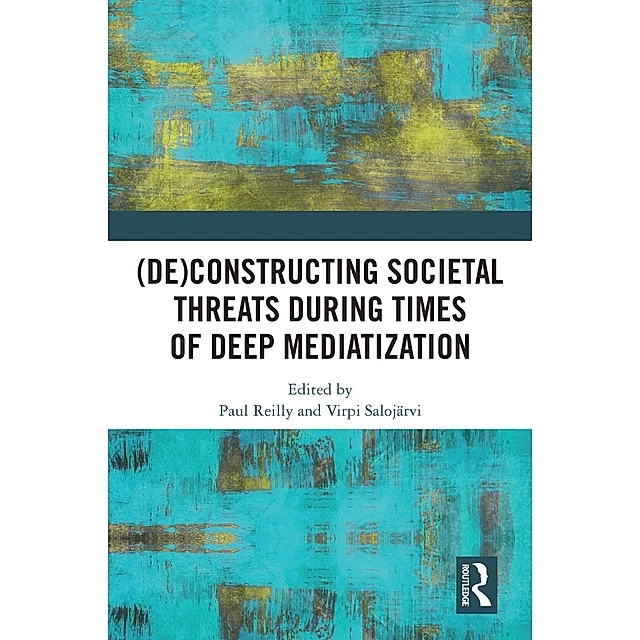
A reminder that we are having an online launch event for our edited volume on societal threats and mediatization next week. Details below.
Please join the authors for a launch event to mark the publication of the book ‘Deconstructing societal threats during times of deep mediatization.
This book explores how both elite and non-elite actors frame societal threats such as the refugee crisis and COVID-19 using both digital and traditional media. It also explores ways in which the framing of these issues as threatening can be challenged using these platforms.
People typically experience societal threats such as war and terrorism through the media they consume, both on and offline. Much of the research in this area to date focuses on either how political and media elites present these issues to citizens, or audience responses to these frames. This book takes a different approach by focusing on how issues such as the refugee crisis and the COVID-19 pandemic are both constructed and deconstructed in an era of hybrid media. It draws on a range of traditional and innovative research methodologies to explore how these issues are framed as ‘threats’ within deeply mediatized societies, ranging from content analysis of newspaper coverage of the Macedonian name dispute in Greece to investigating conspiratorial communities on YouTube using Systemic Functional Linguistics. In doing so, this book enriches our understanding of not only how civil and uncivil actors frame these issues, but also their impact on societal resilience towards future crises.
(De)constructing Societal Threats During Times of Deep Mediatization will be a key resource for academics, researchers, and advanced students of Communication Studies, Media Studies, Journalism, Cultural Studies, Research Methods, Sociology and Politics.
The chapters included in this book were originally published as a special issue of The Communication Review. Many thanks to our authors for their excellent contributions, which are listed below:
1. Framing the Macedonian name dispute in Greece: Nationalistic journalism and the existential threat
Minos-Athanasios Karyotakis
2. The “ultimate empathy machine” as technocratic solutionism? Audience reception of the distant refugee crisis through virtual reality
Zhe Xu and Mengrong Zhang
3. A systemic functional linguistics approach to analysing white supremacist and conspiratorial Ddscourse on YouTube
Olivia Inwood and Michele Zappavigna
4. Internet regulation and crisis-related resilience: From Covid-19 to existential risks
Gregory Asmolov
The book can be ordered here
Please register for the online book launch here
